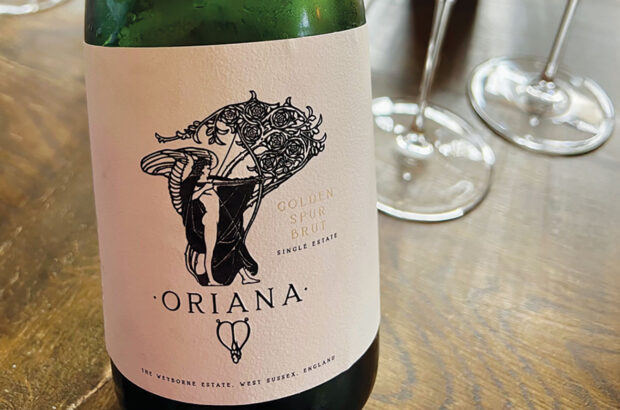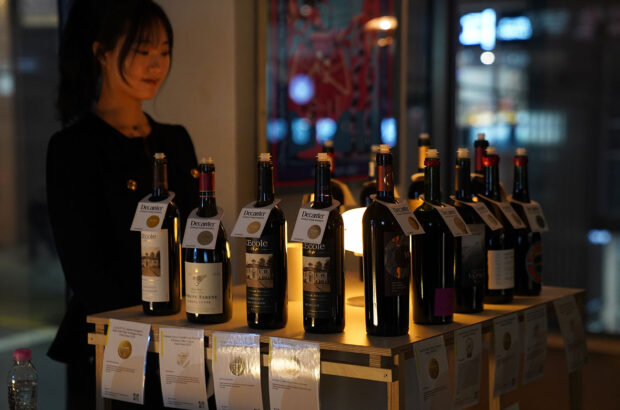Moscato d’Asti from Asti DOCG is a sweet wine with an effervescence, yet not quite a sparkling wine. The best examples of Moscato d’Asti offer an array of aromas including fresh grapes, fleshy citrus, roses and jasmine. And on the palate, their sweetness is balanced by an acid backbone and fresh vibrancy that makes them ideal for pairing with many culinary classics.
Wine lovers have long known the pleasure of matching the delicate pétillance and sweetness of Moscato d’Asti with a festive panettone or an indulgent dessert, but the wine’s appeal with savoury dishes is perhaps newer to many. Even then, one might expect them to be delicious alongside cheeses but what about a creamy pastas or even game? And for many, a more surprising match for this low-alcohol sweet wine is Chinese regional cuisine.

Moscato d’Asti’s soft fruit sugars and gentle bubbles pair well with Cantonese cuisine.
Treats from the East
Moscato d’Asti’s soft fruit sugars and gentle bubbles harmonise with Chinese favourites like Sichuan chicken – its powerful flavours drawn from chilli oil, peppercorn, ginger and spices. Equally, it pairs beautifully with the homestyle dish, Suanni Bairou, which consists of slivers of pork basted in a garlic chilli paste. The gentle mouthfeel of the wine balances the dish’s spices and rounds off the full flavours of this celebratory hotpot.
It is perhaps a little surprising that dishes from the ancient Chinese kingdom of Yue, popularly known as Cantonese cuisine, or recipes from the Zhou Dynasty’s Lu state, popularly known as Shandong cuisine would be complemented perfectly by an Italian semi-sparkling wine. Yet a Maipo Beancurd is wonderfully lifted by the hints of fermentation on the nose of a Moscato d’Asti, reminiscent of candied nuts, poached pears and nectarine. A Cantonese sweet sour pork or Mandarin fish from Shandong can overwhelm most wines with their piquant sauces, but Moscato d’Asti charms and adds depth to the complex sweet sour sauce.

Moscato d’Asti’s freshness and acidity adds zing to many culinary delights from the Asian continent.
Cutting through with zing
With pork accounting for around 60% of the meat consumed in China, dishes such as Dong Po Rou – pork belly simmered until tender in a sweet sticky sauce – are popular. The dish named after the Chinese poet, painter, writer and scholar, known as Su Dongpo, who governed Hangzhou (during the Song Dynasty) from which the classic originates, has a treacly, syrupy sauce which overwhelms most wines. Moscato d’Asti however, has a freshness and acidity that adds just the zing this dish needs.
And this is just the beginning of the unexpected yet exquisite pairings for Piedmont’s semi-sparkling wine. Chinese cuisine by no means has a monopoly on Moscato d’Asti pairings, on the contrary, this unique wine pairs well with many more culinary delights from the Asian continent. Dishes full of flavour and spice, such as Thai green, yellow, red and Massaman curries, Indian Masalas, Indonesian Satay, Sri Lankan Fish Curry, Singaporean Chilli Crab and Korean Bibimbap. And the list could go on. These rich and complex dishes, which can appear to be a wine pairing challenge, are actually perfectly accompanied by a glass of Moscato d’Asti’s finest.
Discover more about the wines of Asti DOCG
Connect on
Facebook | Instagram | X | YouTube

Read more about Asti wines:
Asti: Putting the sparkle back into the summer
The many styles of Asti
![]()
Read more about the wines of Asti DOCG:
Asti: Putting the sparkle back into the summer
The many styles of Asti







